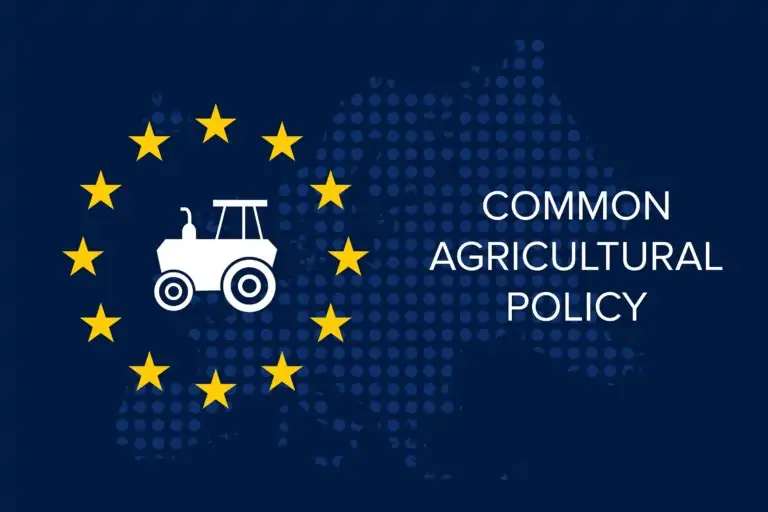The common agricultural policy in Europe is 60 years old and although it has been the bedrock of European agricultural policy it has changed significantly over the years with a shift in emphasis away from meeting the post World War II needs of Europe in food security and increasing food production and instead move toward environmental objectives. In the latest proposals for the common agricultural policy from 2023-2027, there are ten thematic areas covering a range of economic, environmental, and social issues.
The new legislation, which is due to begin in 2023, paves the way for a fairer, greener and more performance-based common agricultural policy. It will seek to ensure a sustainable future for European farmers, provide more targeted support to smaller farms, and allow greater flexibility for EU countries to adapt measures to local conditions.
What are the key proposals or the updated common agricultural policy?
A key feature of the new policy is the introduction of strategic plans at the member-state level, enabling national governments to tailor the provisions of the common agricultural policy to the needs of their farming communities in cooperation with local authorities and relevant stakeholders. A quarter of direct payments are reserved for green farming practices. It is the first common agricultural policy reform to promote adequate employment conditions for farm workers.
Once the details of the post-2022 common agricultural policy are agreed upon, Member States will implement them through “CAP Strategic Plans” designed at the national level and monitored by the European Commission. Member states had until 31st December 2021 to submit their strategic plans for approval by the European Commission, and the new regulations will enter into force on 1st January 2023.
What are the new European thematic objectives for the common agricultural policy?
There are ten objectives or thematic areas for which EU member states are expected to develop national plans. These incorporate a range of economic, social, and environmental objectives. Focused on social, environmental and economic goals, these objectives will be the basis upon which member states will develop their strategic plans. The new European Thematic objectives are:
- To ensure a fair income for farmers;
- To increase competitiveness;
- To improve the position of farmers in the food chain;
- Climate change action;
- Environmental care;
- To preserve landscapes and biodiversity;
- To support generational renewal;
- Vibrant rural areas;
- To protect food and health quality;
- Fostering knowledge and innovation.
A minimum of 10% of direct payments will be used to support small and medium-sized farms and at least 3% of the CAP budget will go to young farmers. There will also be a crisis reserve with an annual budget of €450 million (current prices) to protect farmers from price or market instability.
The common agricultural policy and the European Green Deal
The new CAP is a key tool in reaching the ambitions of the Farm to Fork and biodiversity strategies within the European Green Deal published in 2020. The EU’s goals are to ensure food security in the face of climate change and biodiversity loss and to reduce the environmental and climate footprint of the EU food system.
The proposals have had their critics from the environmental movement who claim that measures to protect the environment do not go far enough. Birdlife Europe and the EEB argued that the European Commission should have pushed for stronger common agricultural policy strategic plans that better align with the Green Deal targets.
In 2018, the European Court of Auditors indicated that the common agricultural policy proposals did not reflect increased environmental and climate ambition.
The impact of the war in the Ukraine on common agricultural policy plans
The reforms have now come against a background of the war in Ukraine and food price inflation. This has led to calls for a greater emphasis on food production within European Agricultural Policy. There have been calls to allow protein crops to be grown on fallow land, and to allow emergency use of pesticides. In addition, Italy and Slovakia have made calls to revise their recently submitted common agricultural policy plans. According to the Czech agriculture minister Zdeněk Nekula, who takes over as chair of the EU Agrifish Council in July.
“We have to see what is the current situation, we have to see the war in Ukraine related to the impact of, for instance, soaring prices of energy of fertilisers and other commodities”.
In the development of national plans, the reforms represent a further decentralisation of the common agricultural policy with member states reflecting their own strategic priorities and local conditions. With the inclusion of worker protection, the reforms further broaden the scope of EU farm policy and European thematic objectives. However, it remains to be seen whether the reforms can achieve such a broad range of different objectives, especially considering a turbulent global economic, environmental, and political environment.
Need support navigating new policies and regulations?
At Farrelly Mitchell, our expert agribusiness consultants offer concise, actionable insights into agricultural policy reforms, sustainability, and ESG strategies, leveraging our deep understanding of global food systems and industry trends.
With our strong foundation in policy and regulation support, we’re equipped to guide you through the complexities of today’s agricultural landscape, ensuring your decisions are informed, strategic, and aligned with the latest in sustainability practices.











